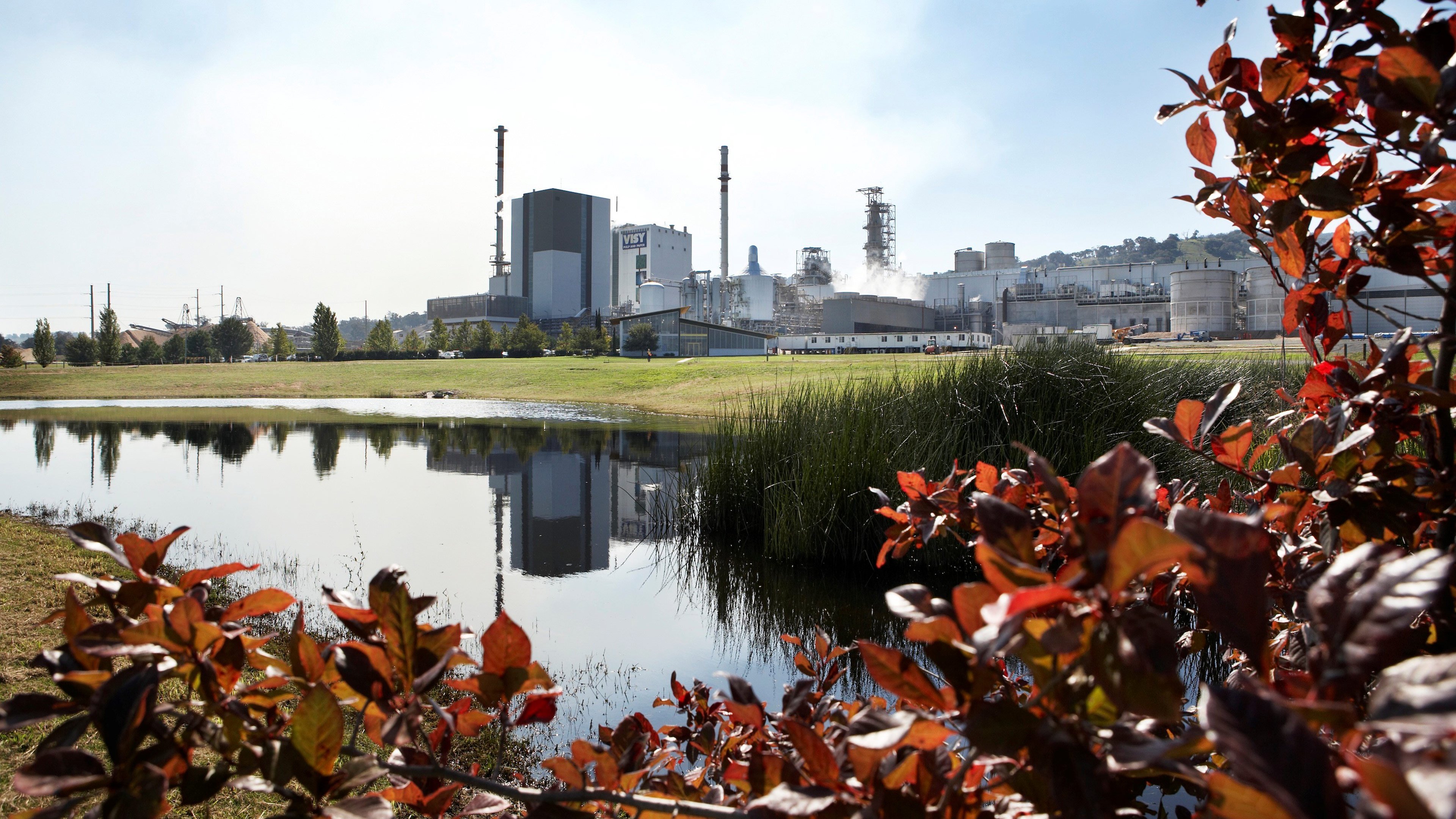Visy is a global leader in the packaging, paper and resource recovery industries, providing high quality, innovative and sustainable packaging products and solutions.
The company has been leading packaging innovation in Australia for over 60 years and has more than 120 sites across Australia, New Zealand, Thailand and Vietnam and trading offices across Asia, Europe and the USA.
Sustainability is a pillar of Visy’s business. From the products they make, to resource recovery cycles and the business, including making employees safer, local communities healthier and customers more profitable.
Limiting impact on the environment is one of Visy’s key missions. They take responsibility for the entire lifespan of their products - from conception to when they are recycled into something else.
Visy’s Pulp and Paper mill in Tumut, New South Wales is the largest integrated pulp and paper mill in Australia and has set new standards in sustainable kraft paper manufacturing and environmental performance - producing high-quality kraft paper for both domestic and international markets.
Two million tonnes of plantation-sourced wood is processed at Tumut each year, meaning that a wood truck arrives at the site every five minutes, each day. The site is one of Australia’s largest exporters of containerised manufactured goods and hosts a renewable energy generation facility, producing half of the plants own energy needs. Visy Tumut also operate a closed loop water system, where all mill wastewater is reused for farm irrigation.
In FY2017-18, Paper Machines 9 (PM9) and 10 (PM10) at VISY Tumut produced over 681,000 tonnes of unbleached kraft paper.
As a company that is always looking towards the future, Visy took a proactive approach in upgrading legacy drive control equipment on the PM9 winder downstream of the paper machine to avoid any potential for downtime while also future proofing the Tumut plant.
Planning and design
Visy contracted Rockwell Automation to conduct the planning and design stage of the project. Matthew Barrett, senior project engineer, Rockwell Automation explained that, “The first step of the project was to perform a Front End Engineering Design (FEED) study. As part of this process we worked closely with Visy to gain a detailed understanding of the engineering requirements for the winder upgrade.” Upon completion of the FEED, a detailed proposal was prepared and the upgrade commenced.
Visy’s Tumut plant produces high quality linerboard paper for cardboard boxes. Paper Machine 9 produces a ‘jumbo roll’ that is 3.2m in diameter by approximately 5.5m wide. This jumbo roll then moves into the winder, which cuts the paper into smaller rolls to suit customer requirements and allows for easy shipping. Each roll coming off the winder is wound with a specific tension profile, to avoid collapse or telescoping.
Latest drive technology
The operational requirements of the drive system are very demanding — it must be able to rapidly accelerate and decelerate the heavy rolls and maintain web tension and production speed of up to 2500 metres/minute while the diameters of the rolls are changing.
To achieve consistent roll quality, it is essential to keep the whole winder system stable. Settings on the drives and control system must be finely tuned to ensure that tension fluctuations do not affect the roll structure. To achieve this, coordination of the drives on the winder was crucial. “If all the drives are not coordinated, the winder is unable to work effectively,” explained Barrett.

